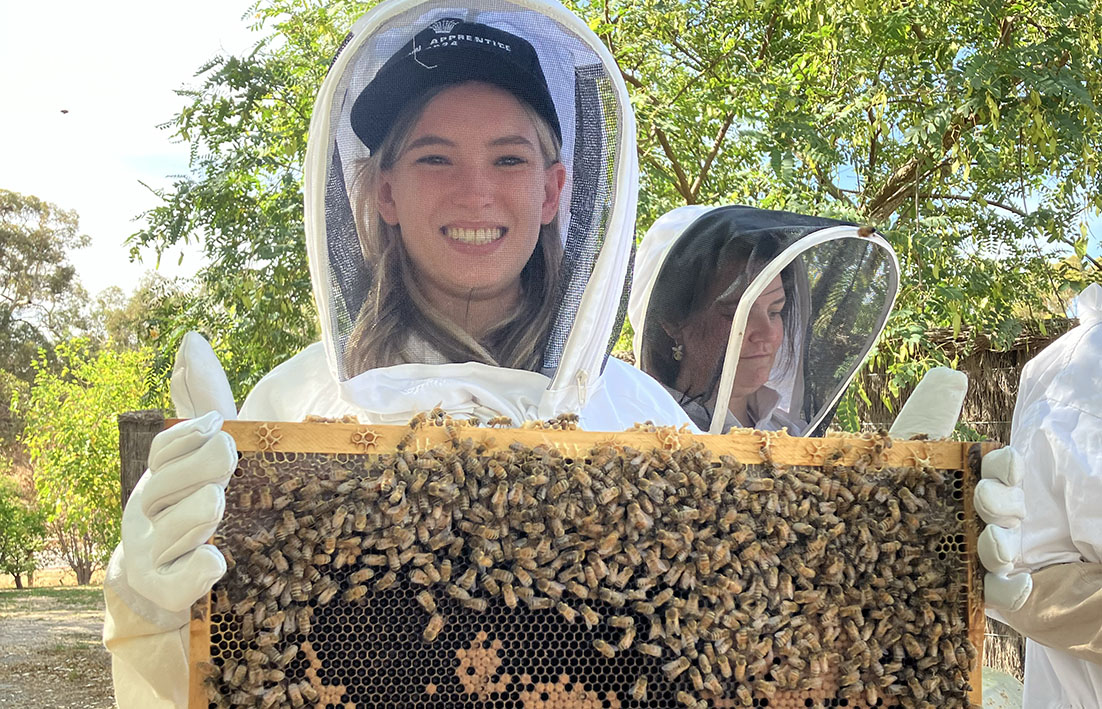
EARLIER this month 36 apprentice chefs from Crown took part in a day of training and giving back to the local community during a visit to the Swan Valley.
Many of the apprentices hail from the Echo News readership area including Bassendean, Ellenbrook, Midland, High Wycombe and Swan View.
Crown’s apprentice program includes a calendar of regular training with workshops and learning experiences that support their personal and professional growth.
The chefs visited The House of Honey in the Swan Valley to learn about the importance of bees, and have hands-on encounters in the bee hives.
They also got to take part in a sensory honey experience, with a personal tasting session to help them understand why and how honey tastes different depending on the region, along with the collection process and more.
Getting up close and personal with the bees was an important experience for the chefs, as they heard about the devastation of the bee population in Australia, the impact of fires over the years, and the importance of looking after our jarrah forests.
This was followed by work at the Garden of Hope at the Harry Hunter Rehabilitation Centre, planting seeds, harvesting vegetables, weeding, and building garden beds.
The garden provided those being rehabilitated a space to engage in healing activities with nature, build relationships with community, learn new skills and share food together, such as on wood fired pizza nights.
Mark Curtis, who runs the Garden of Hope alongside his wife Nikki, shared his journey from addiction to faith and well being with the apprentices.
Crown Perth’s Emmanuel Benardos said the apprentice’s contribution to the Garden of Hope affirmed the resorts’ ongoing commitment to the Salvation Army, an organisation they have close ties with.
“These hands-on experiences are such a crucial part of training and growing our apprentice chefs,” he said.
“The activities promote ethical and sustainable practices from the chefs, providing them with tools to engage in ethical and sustainable practices and understand local food sources.
“It’s also a great opportunity for them to be fostering relationships with community organisations and suppliers.”